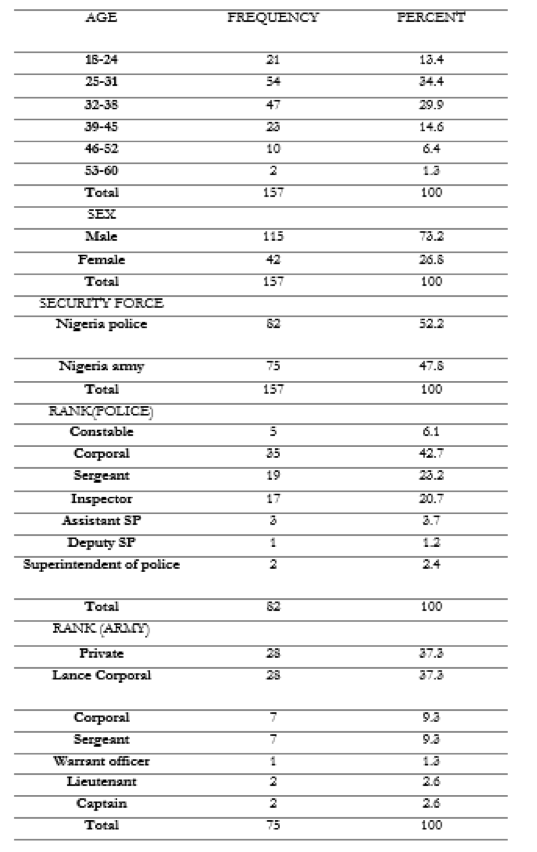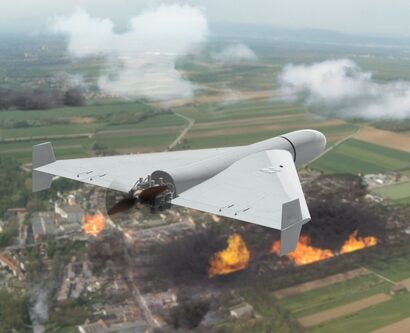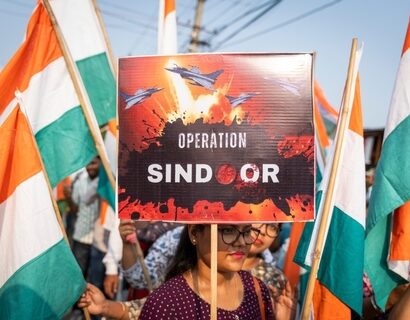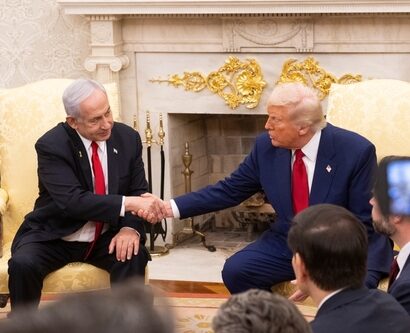Abstract: The contemporary security landscape in Nigeria poses unprecedented challenges that outstrip the protective capabilities of conventional police alone. Globally, the fight against insurgency and other novel security crises requires the police and other relevant security agencies’ collaboration, especially the army. However, this collaboration may be hindered by the recurring inter-agency conflicts among the police and other security agencies. We have conducted a study of this phenomenon. Our study of the Nigerian Police and the Nigerian Army, the results of which are detailed below, reveals that the major causes of the rift between both organizations include inter alia; mutual suspicion among members of both organizations; differences in the two agencies’ ranking structure and superiority claim.
Bottom-line-up-front: This paper examines reported cases of conflict between the Nigeria Police and the Nigerian Army to explore the possible causes of the conflict and consider the unavoidable need for both agencies to work together for effective policing. The paper employs Dahrendorf’s perspective of the Conflict theory.
Problem statement: How to employ a nation’s security sector in a coordinated and efficient way to legally counter internal security threats?
So what?: It is suggested that officers and personnel of the two agencies acknowledge their complementary relevance and forge harmonious relationships to promote effective policing. If the war on crime and insurgency in Nigeria is to be won, then the government must also develop a policy for rank-parity in the organizations.

Source: pixabay.com
The Security Situation in Nigeria
The need for a safer and more secure society has become the primary duty of Nigeria’s government and security apparatus in the wake of increased security threats and the emergence of terrorism. Insecurity permeates the entire nation, stunting economic growth[1] and even threatening national unity[2]. Security discourse is therefore highly pertinent, putting every option on the table to ensure the crisis is appropriately addressed. Contemporary community policing for this purpose is primarily the responsibility of the Nigeria Police Force.
And the work of the police force is not easy: Nigeria faces numerous simultaneous security crises. These include the Boko Haram in the North-Eastern part of the country; activities of “killer herdsmen” which have affected Nigerian states like Kaduna and Benue and extended to the southwest-states like Oyo and Osun; kidnapping which is springing up almost across the country; and other more common forms of criminality like armed robbery, etc. The police are therefore faced with a herculean task of providing adequate security for lives and properties threatened on multiple fronts. Unsurprisingly, they cannot do it alone.
Nigeria faces numerous simultaneous security crises. These include the Boko Haram in the North-Eastern part of the country; activities of “killer herdsmen” which have affected Nigerian states like Kaduna and Benue and extended to the southwest-states like Oyo and Osun; kidnapping which is springing up almost across the country; and other more common forms of criminality like armed robbery, etc.
Due to the seemingly ever-rising insecurity in Nigeria, the work of policing has been extended to other security apparatus of government, like the Army, Navy, Nigeria Security and Civil Defense Corps, and in some cases the Civilian Joint Task Force (Civilian JTF) and other vigilante groups. To facilitate effective cooperation, states across the country have inaugurated Joint Task Forces of the police, the military, civil defense corps. In places with increasing terrorist attacks, regional governments have also engaged local hunters or vigilante groups to boost the security of their states and, ultimately, protect the lives of the citizens. These multi-apparatus taskforces have taken on different codenames, like Operation MESA in Lagos, Operation Burst in Oyo, Quick Response Squad in Ogun state, and Operation Yaki in Kaduna. These cooperative efforts reinforce the interdependence and interrelatedness of Nigerian security agencies. However, the conflict that often ensues among personnel of the different cooperating security organizations threatens the effectiveness of these task forces’ work.
The incessant clashes between the police and the army remain enigmatic despite all efforts of different stakeholders to proffer a permanent solution to the crises. This ongoing inter-agency conflict counterproductively contributes to the security challenges facing the country, as brothers-in-arm exhibit suspicious tendencies and do not trust each other. The relationship between the police and army in the country has been described as the relationship of a cat and a mouse, suggesting a demonization and subordination battle between the police and the army.[3] Hence, this study examines the underlying reasons for clashes between the police and the army in Nigeria, and aims to foster a more efficient relationship and by extension ensure a safer society in Nigeria.
Police-Army Clash in Retrospect
The table below provides a retrospective look into news coverage of the clashes between the police and the army between 2010-2018 in Nigeria:

Table 1: Inter-Agency clashes between 2010-2018[4]
The clashes between officers of the Nigeria police and army are often fully unexplainable in the heat of the moment and can cause panic in society. For instance, citizens going about their business were thrown into commotion when a fight broke out between a police officer and a soldier which made people scamper for safety[5]. Often, catalysts for the clashes could be as simple as a disagreement or misunderstanding resulting from the agencies’ overlapping function in society. On closer inspection, however, this apparently inscrutable menace could in fact be a carryover of colonization and the years of autocracy after independence.
Dahrendorf’s Perspective of Conflict
British-german sociologist Dahrendorf’s perspective of conflict shows how relations in society are determined based not just on economic determinism but also on the power balance among different groups in the society.
He argued that conflict in society is based on authority, which causes a continuous struggle between the dominant and the subordinate groups in society – a factor which could explain the incessant clashes between the police and the army in Nigeria. The ongoing conflict between the two is a product of the struggle for authority and domination over one another. The exposure of the military to the position of authority in Nigeria has given them an impression of superiority[6]. As captured by Alemika, military rule in Nigeria has had a prolonged negative effect on the police’s functions and operations. The period of military rule between 1966 and 1999 saw the gradual depletion in the police’s strength and armory until the police institution was effectively relegated within the country’s security architecture. The return to democracy in 1999 signaled the return of the police as the symbol of civil authority in the country. However, the changed power dynamic increased the rivalry between these two bodies.
Dahrendorf’s theory suggests the struggle for dominance as the crux for conflict in Nigerian society, as represented in the relationship between the Nigeria Police and Nigerian Army in the discharge of their constitutional duties. The relationship between the police and the army has really not changed post-military rule in Nigeria and this has been shown often by the working relationship that has been witnessed by the general public. The case of a notorious kidnapper, Wadume[7], is a perfect fit, showcasing the unbelievable rivalry between these sister-agencies.
The Study’s Probands
The authors conducted a study to further explore the power dynamic and security clashes between the Nigerian Army and Nigeria Police. The study adopted a concurrent mixed method for the purpose of eliciting meaningful and in-depth information from participants. This design, without preference, is a combination of complementary qualitative and quantitative orientations. A total of 157 personnel from the Nigerian Army and Nigeria Police participated in the study.
The study was conducted using the purposive sampling technique. Purposive sampling technique as a non-probability sampling technique is critical to the study of a group believed to be well-informed about the subject matter of interest. For questioning, the study utilized an open-ended questionnaire to elicit information from the study participants, and an open-ended interview guide was used for the In-depth Interview. The analysis procedure followed the mixed-method design of the study. A simple descriptive analysis was used for the quantitative strand of the study, while content analysis was used to complement information obtained from the quantitative side of the study. Ethically, the study got the approval of the authorities of both the Nigeria Police Force and Nigerian Army in carrying out this study. Study participation was anonymous.


Table 2: Socio-demographic variables of the respondents
The table above shows the socio-demographic percentage distribution of the respondents that participated in the study. The study showed that the majority of the respondents were between the ages of 25-31.
To facilitate a better relationship between the police and army in Nigeria, the study aimed to uncover the possible reasons for the incessant clashes between the sister agencies. The study used mutual respect, training mode, power tussle, and promotion as measurement for the possible reason for the clash.
When it comes to the clashes causes, 57.3% of the participants believed that there was no mutual respect between police officers and soldiers, with most of these respondents claiming that the possible reason for this lack of respect was the fight for supremacy between the two agencies.
The majority of the participants also highlighted the role of training as a possible cause for conflict. The majority of study participants claimed that the two agencies’ personnel trainings were different and distinct and thereby a catalyst for inter-agency conflict. They argued that police officers are exposed to a training that is entirely different from military training, which affects how each of the agencies perceives each other. Ultimately, this difference influences the ‘superior-inferior’ relationship currently playing out between these agencies.
When further asked about the issues of power tussle, 35% of the respondents believed that the clash is always due to power tussle between them.
While considering the overlapping nature of their responsibility and abuse of power, 52.7% of those who claimed power tussle is responsible for the clash asserted that the issue of superiority is a primary cause.
Some of the interviewed respondents highlighted that lack of exposure regarding their mindset on the part of both personnel of the Nigerian Army and the Nigeria Police Force often contributes to the impasse between these agencies. One respondent argued that the nature of insecurity in the country has warranted the government to create joint operations of different governmental security agencies to tackle the security crises in the country. However, this should not necessarily make the police force subordinate to the Nigerian Army. Interestingly, one of the interviewed participants alleged that Nigeria’s security architecture contributes to the crisis by not giving overlapping functions to these agencies. Some of their views are presented below:
“In one word, indiscipline and in going further, it is as a result of recklessness we have in the Nigeria system generally. If there is discipline and it is followed to the letter, we shouldn’t be having crises of the like, because in the first place, they are supposed to work together for the good of the society as a whole. Talking about recklessness, I would say again, it is a culture of impunity that we are used to in Nigeria. The misperceptions of the military being superior to the police gets into their head and make them misbehave. Also, the police officials undergo excess use of power. If discipline is present, for instance, a soldier not beat up a police man even with the presence of the law, instead they should report to their superior. Also, the policeman should be aware that he or she should not assault anyone much less a fellow security agent.” (Legal Practitioner)
“That is as a result of personal ego between the junior ranks. I don’t think that should undermine the relationship between the two organizations. Because if it had undermined the organization they represent, we won’t be having the smooth relationship with the management of the other organization. So, the working relationship has been so cordial.” (Senior Police Officer 2)
Participants of this study that were interviewed expressed mixed feelings concerning the cause of the clashes between the police and the army. It is important to mention that there seems to be no absolute explanation for the tragic events, albeit, participants have pointed to lack of discipline and fight for superiority as a critical contributor to the crisis between the police and the army.
Constitutional Provisions for Police-Army Collaboration
As well as examining the root cause of inter-agency conflict, the study was interested in understanding the participants’ perception on the constitutional provision for collaboration between the police and the army. This question became very important considering the fact that the constitution of the federal republic of Nigeria clearly defined that the military will primarily be used to tackle external aggression and also to quell insurrection, the constitution also provided that the police will maintain peace and order within the Nigerian territory. The President is also given the power by the constitution to give other assignments to the military as he/she may see necessary even if it is within the country. This formed the basis for asking the question to ascertain the understanding of the personnel of these agencies concerning operational collaboration.
The vast majority of the respondents believed that it is right for both the police and army to collaborate to enhance security in the country.
Similarly, 84.7% of the respondents maintained that collaborative work between the police and the army is constitutional. Only a meager 15.3% of the respondents believed that there is no provision for collaboration between the army and the police in the constitution of Nigeria.
Additionally, the study asked if there is an adequate awareness in terms of how best to collaborate. In response to the question, 74.5% of the participants thought that there is an adequate awareness among men and officers of the agencies. In comparison, 25.5% of the respondents were also of the opinion that there was no adequate awareness among officers and men of the provision of the constitution on the subject of collaboration. 66% of the respondents believed that there must be clarification for officers to create awareness of the need for collaboration among the agencies.
Similarly, the respondents of this study were asked to give their opinion on the role of the Federal Republic of Nigeria’s constitution in collaboration efforts of security agencies in the country. Some participants believed that the constitution is explicit enough to create a joint taskforce to maintain peace and order in society. Some of the participants argued that the constitution gives the prerogative capacity in the President, which has led to the creation of various joint taskforce initiatives across the country. This constitutional arrangement does not and should not relegate the effort and capacity of the Nigeria Police Force to what would be described as ‘Second fiddle’, ‘inferior’, or ‘incapacitated’. Some respondent opinions are presented below:
“I don’t think there is a problem about that. I think whether edit or law, once it stipulates, personnel must just fit into such a provision. I think the police should lead because we know how best to fight crime and this cannot bring rift between the soldiers and the police officers.” (2PPRO_M_P)
“I totally disagree that the constitution of the federal republic in any way contribute to this menace, because, the constitution of every any country do have to cater for very situation. We have the Nigeria Police Act which clearly delineate the role of the police, which is to maintain the civil authority and the army has their own role in the constitution.” (P3_E_Oyo)
The respondents of this study were further asked to give their opinion of the most appropriate methods that the government can employ to tackle these inter-agency conflicts. Respondents emphasized that the responsibility for ensuring legal and constitutional compliance among these agencies lies with the government. It was suggested that the government intentionally build a strategic and objective synergy between the police and army to quell the incessant clashes—a matter of urgency due to the unprecedented increase of insecurity in the country. A possible solution to the problem would lie in the country’s collaborative efforts.
Discussion
The findings of this study support Ralf Dahrendorf’s assertion that conflict is primarily based on a struggle for authority or power. This assertion is true considering the operations of the Nigeria police and army, as they must both work together in spite of the incessant clashes that happen between them. This study additionally affirms that the relationship between police and the army in Nigeria is a ‘cat and mouse’ relationship.[8]
The police and the army are constantly in a relationship shrouded in suspicion where they abhor each other but are forced to work together.
Similarly, it revealed that the issue of superiority also plays a critical role in the past. Personnel of the two agencies engage in a brawl at times because of rank, with some referring to the ranking structure of the agency they belong. This has brought untold hardship on not just the officers of this agency but also on innocent citizens whom these men and female have vowed to protect even with their lives.
Even without the intent of uncovering inconsistencies in the claims of personnel, the study found a high rate of denial. This could be an attempt by some participants of the study to positively project the image of the agencies. Despite the evidence, some personnel of both agencies do not believe there is a clash between the police and the army, and they were consequently not ready to admit that this is a problem which needs urgent attention. This denial keeps the menace alive because steps cannot be taken to address this issue if key players will not accept the reality.
Recommendations
The need for an effective relationship between the police and the army cannot be overemphasized considering the country’s various challenges in recent times. Although there is the opportunity for strong harmonization between the two agencies, key steps need to be taken to help achieve this laudable feat, which will help advance the country’s security infrastructure. Some of these steps include the following:
- Mutual Respect: The issue of mutual respect is key in achieving an effective relationship between the police and the army. This study reveals that some of the inter-agency friction is due to a lack of mutual respect for officers. This involves recognition of a superior officer by both agencies. Also, the issue of mutual respect entails giving adequate and expected salutation from officers of agency. Many clashes between officers of the police force and the Nigeria Army result from a lack of mutual respect between them. That means that these clashes are very much avoidable if a proper and effective recognition of rank-parity exists between the police and the army.
- Pre-Collaboration Relationship: It is quite important to reiterate at this point that collaborative work between the police and the army is plausible, but it would be greatly enhanced by the establishment of a Pre-Collaboration relationship between the two agencies. The Pre-Collaboration relationship could take the form of a level of joint training, especially in civil matters, to create a bond between the officers representing the two agencies. Moreover, authorities of the agencies should come up with attainable and realizable strategies that can help create the needed synergy between the police and the army to combat the common enemy: crime in the country.
- Communications: It is imperative to ensure that there is an open channel of communication between the two agencies to ensure smooth information sharing when the two agencies are working towards the same goal: to protect the lives and properties of the citizens of the country.
Limitations of the Study
The findings of this study should be seen in light of some limitations. One critical limitation was limited access to data. This study planned to have an interview with the public relations department of the Nigerian Army. Unfortunately, the interview could not be held due to the unavailability of personnel from the Nigerian Army. This affected the qualitative data collected for the study.
Consequently, the analysis was mainly (although not exclusively) based on the interviews conducted for personnel of the Nigeria Police Force and legal experts. The other restraint was time, especially to gather data from the respondents due to their availability. Lastly, this study was randomly researched based on the number of available and cooperating respondents.
Olaniyi Olumayowa; His research interest is in the areas of Policing and Public safety; Trained as a Sociologist from Obafemi Awolowo University, he has developed a special interest in the field of Criminology.
Lanre Ikuteyijo was trained as a Sociologist and Anthropologist with a specialization in Criminology and Social Research at the Obafemi Awolowo University Ile-Ife. He held various fellowships at other universities within and outside Africa including University of Stellenbosch, South Africa and Brown University, USA. His current publications include Social Dynamics of Prison Philosophies in Nigeria, published by Cambridge Publishers, UK; The Challenges of Community Policing in Nigeria, published by Sage Publishers, UK; amongst others. Dr. Ikuteyijo is a Senior Faculty member at the Obafemi Awolowo University.
[1] I.C. Achumba, O. S. Ighomereho and M. O. M. Akpor-Robaro, “Security Challenges in Nigeria and the Implications for Business Activities and Sustainable Development,” Journal of Economics and Sustainable Development 4, no. 2 (2013): 1700-2222.
[2] Olabanji Olukayode Ewetan and Ese Urhie, “Insecurity and socio-economic development in Nigeria,” Journal of Economics and Sustainable Development 5, no. 1 (2014): 40-63.
[3] Bayo Olupohunda, “Confessions of a Soldier: Why we hate the police,” Naijalog, January 23, 2014, https://doi.org/10.1111/j.1467-8330.2008.00613.x.
[4] References: Gwendoly Njoku, “Wadume: Police narrate how billionaire kidnap kingpin was rearrested,” Daily Post, August 20, 2019; Ojo Damisi, “Soldiers and Police clash in Ondo,” The Nation Newspaper, December 12, 2017; Osagie Otabor, “15 injured as Army, police clash in Edo,” The Nation Newspaper, August 08, 2015; Bolaji Ogundele, “Many injured as police, air force personnel clash,” The Nation Newspaper, July 18, 2017, http://thenationonlineng.net/many-injured-police-air-force-personnel-clash/; J. Isiquzo & M. Ekene-Okoro, “Two dead, five injured in Police, Civil Defence clash,” The Nation Newspaper, March 28, 2013, http://thenationonlineng.net/two-dead-five-injured-in-police-civil-defence-clash/; AFP, “Four dead in army, police clashes in Yobe,” Guardian Newspaper, April 13, 2017, https://guardian.ng/news/four-dead-in-army-police-clashes-in-northeastern-nigeria/; Tony Akowe, “Army, Police probe clash of their men in Ibadan,” The Nation Newspaper, April 13, 2013, http://thenationonlineng.net/soldiers-police-clash-ondo/; Prince Okafor, “Navy, policemen clash in Lagos over tankers’ movement,” Vanguard Newspaper, May 09, 2018, https://www.vanguardngr.com/2018/05/navy-policemen-clash-lagos-tankers-movement/; Emma Nnadozie& Evelyn Usman, “Bloody clash averted as soldiers invade Lagos police station,” Vanguard Newspaper, March 22, 2017, https://www.vanguardngr.com/2017/03/bloody-clash-averted-soldiers-invade-lagos-police-station/; Josiah Oluwole, “Pandemonium as soldiers, police clash in Ekiti,” Times, December 30, 2017, https://www.premiumtimesng.com/news/headlines/253970-pandemonium-soldiers-police-clash-ekiti.html; Olasunkanmi Akoni, “Soldiers, Police in fresh clash in Lagos,” Vanguard Newspaper, June 24, 2011, https://www.vanguardngr.com/2011/06/soldiers-police-in-fresh-clash-in-lagos/; Simon Ebegbulem, “5 killed as soldiers, MOPOL clash in Benin,” Vanguard, March 12, 2010 and Vanguard, “Police/Army clash:Why espirit de corps must not go on exile,” Vanguard Newspaper, June 08, 2011, https://www.vanguardngr.com/2011/06/policearmy-clashwhy-espirit-de-corps-must-not-go-on-exile/.
[5] https://theeagleonline.com.ng/ebonyi-pandemonium-as-soldiers-policemen-clash-over-impounded-tricycle/.
[6] Etannibi E. O. Alemika, “History, context and crisis of the Police in Nigeria,” Repositioning the Nigeria Police to Meet the Challenges of Policing a Democratic Society in the Twenty-First Century and Beyond (November 11, 2010): 1-19.
[7] https://www.africanews.com/2019/08/09/nigeria-police-demands-justice-after-deadly-clash-with-soldiers/.
[8] Olupohunda, “Confessions,” Naijalog, January 23, 2014.






